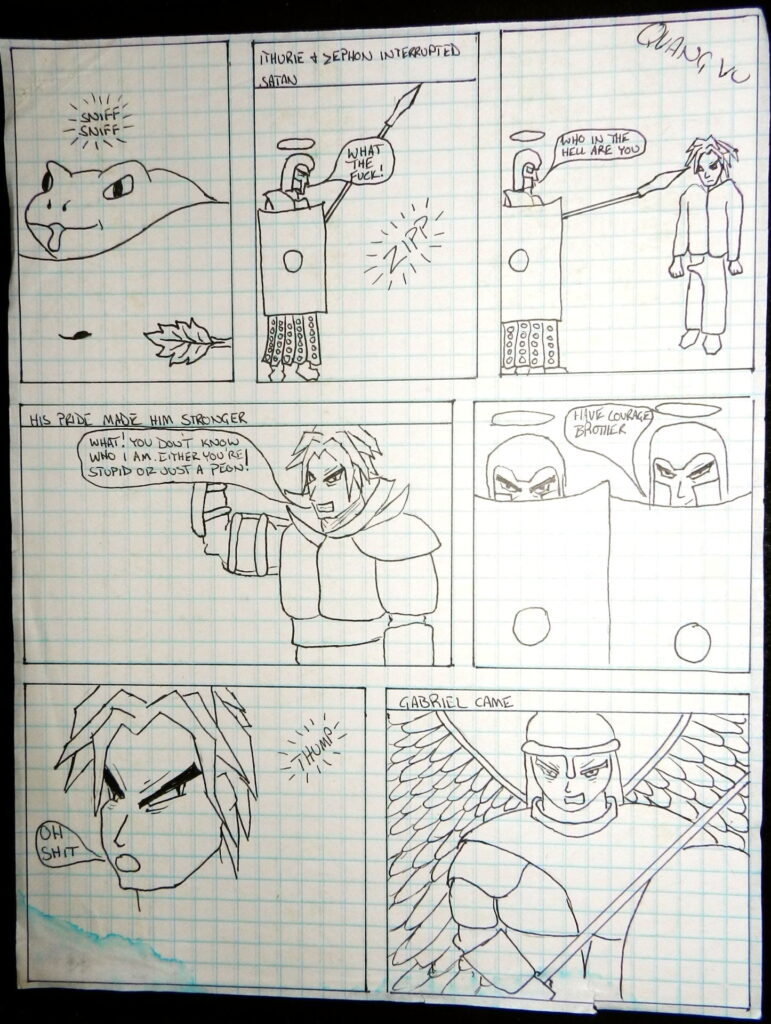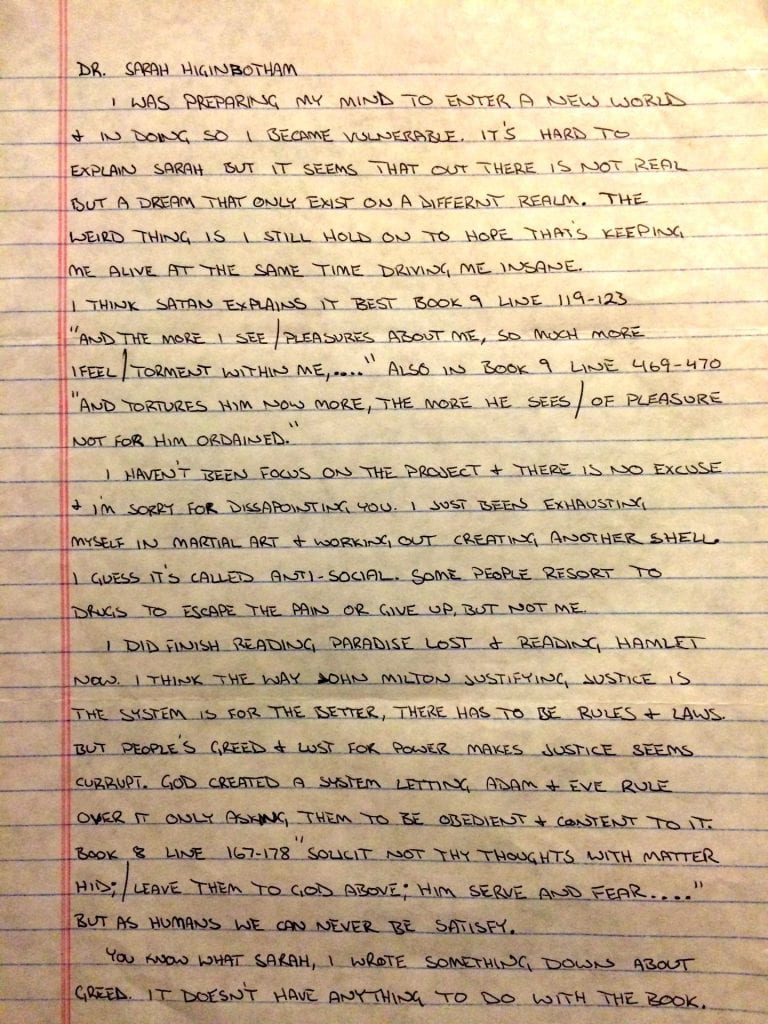article 2:
Shullenberger, William. “Imagining Eden.” The Cambridge Companion to Paradise Lost, edited by Louis Schwartz, 2014, Cambridge UP, pp. 125-38.
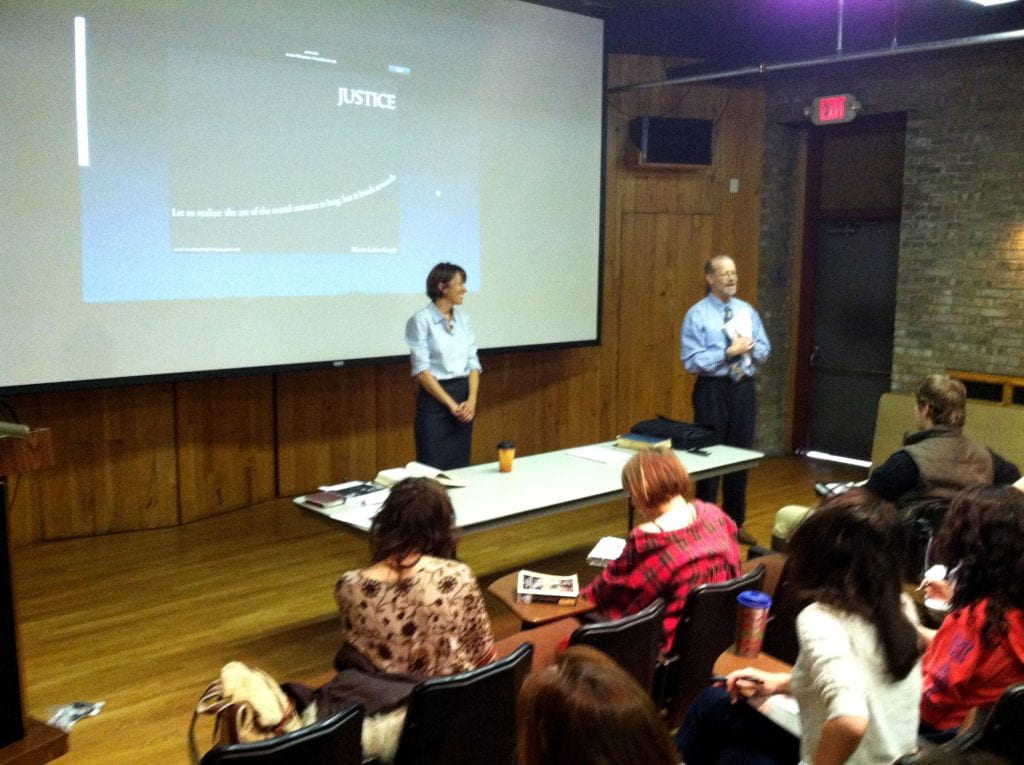

From Thomas Lux:
Have you ever tried to read “Lycidas”?
No wonder Robert Lowell, manic
as a buzz saw, tried to rewrite it!
It’s a hard haul through our early tongue
and there are at least 17 references/allusions
in each of its 193 lines.
I read it all morning and I read it all night.
The next day all day
and 100 miles into the dark.
I still understand little,
and care little about his quarrel with the clergy;
though I am sorry for the loss of his friend
Edward King, drowned in the Irish Sea.
But there is a symphony
in my garden now, the air is a symphony all around me,
the river, the trees,
there is a symphony
in blind, blind Milton’s poem
in my hands! Oh,
I’m on a little train
cresting a hill and my engine
is a symphony and also its smoke.
Tom Lux, The Cradle Place, 2012
Paradise Lost in Popular Culture
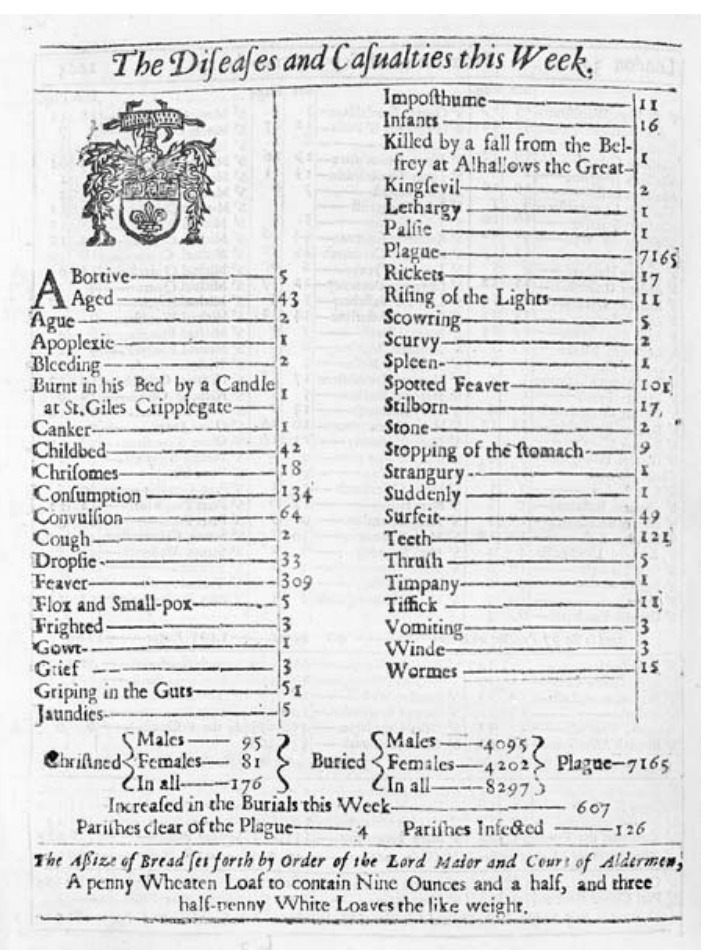
Dr. Samuel Johnson on “Lycidas”:
It is not to be considered as the effusion of real passion; for passion runs not after remote allusions and obscure opinions. Passion plucks no berries from the myrtle and ivy, nor calls upon Arethuse and Mincius, nor tells of “rough satyrs and fauns with cloven heel.” Where there is leisure for fiction there is little grief.
In this poem there is no nature, for there is no truth; there is no art, for there is nothing new. Its form is that of a pastoral, easy, vulgar, and therefore disgusting: whatever images it can supply are long ago exhausted; and its inherent improbability always forces dissatisfaction on the mind. (1779)
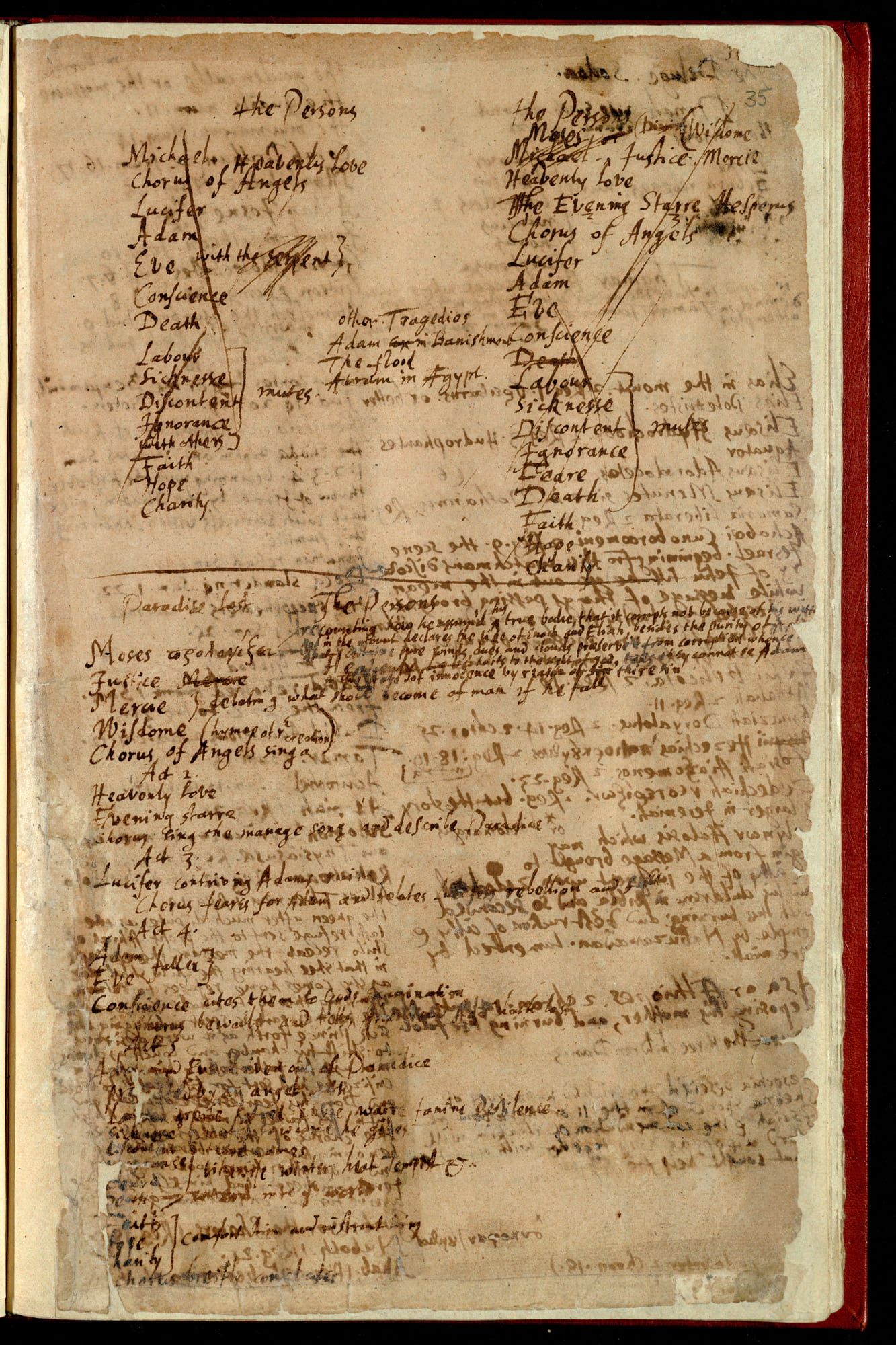
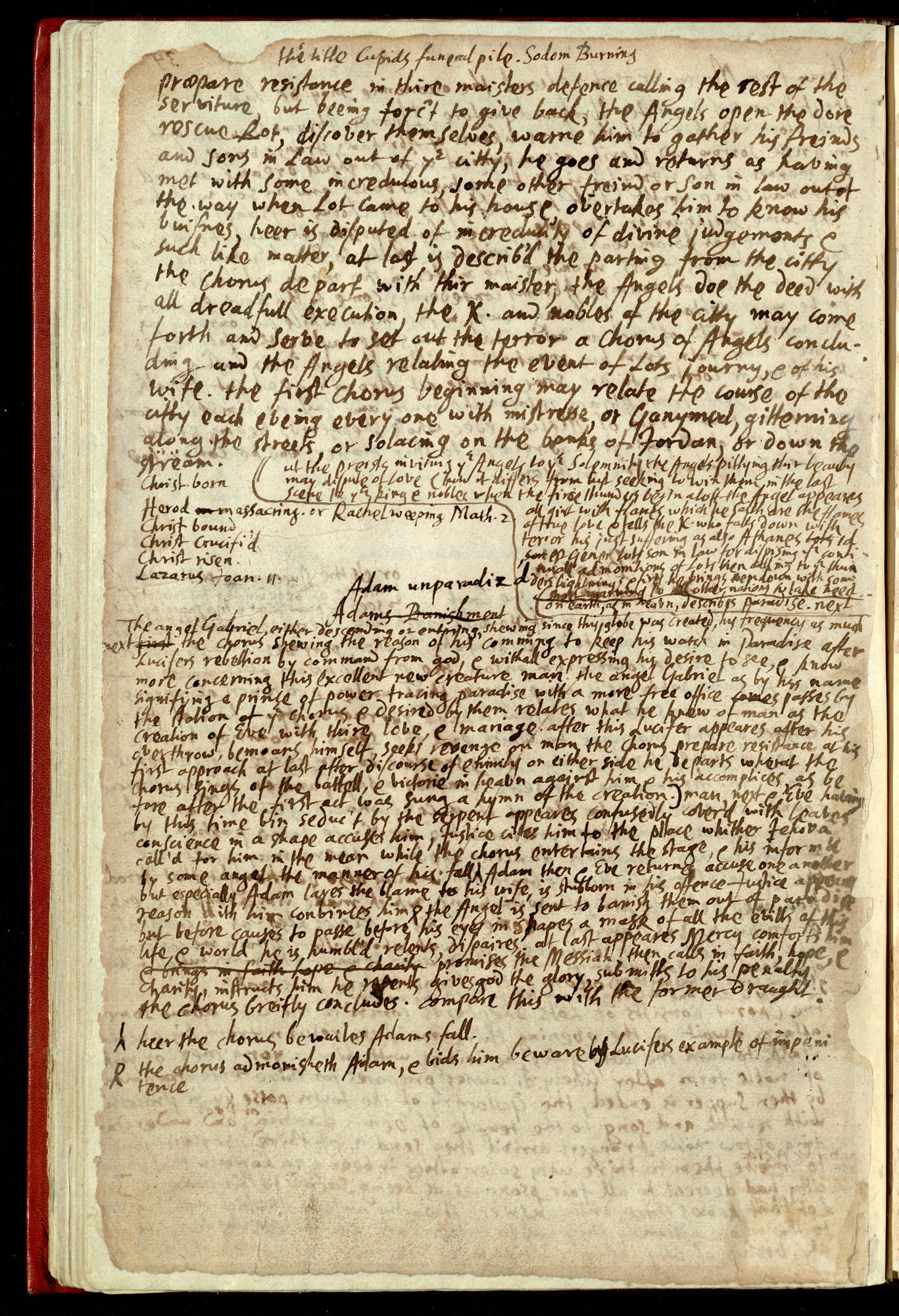
Is this the seat our conqueror has given?
And this the climate we must change for heaven?
These regions and this realm my wars have got;
This mournful empire is the loser’s lot;
In liquid burnings, or on dry, to dwell,
Is all the sad variety of hell.
“Ay, you may tag my verses if you will.” (Milton to Dryden)
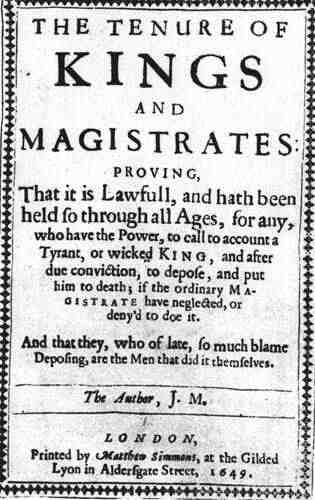
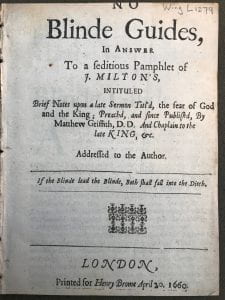
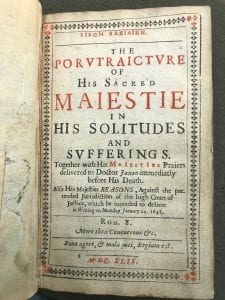
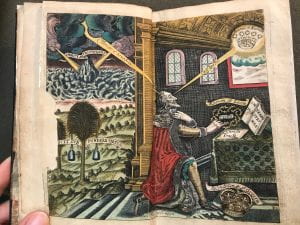

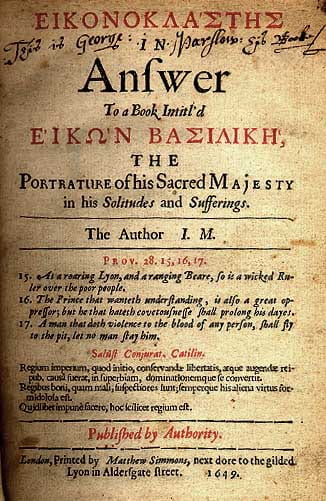
A Room of One’s Own, Jefferson’s Monticello

1823 June 5. (Virginia Jefferson Randolph Trist to Nicholas Philip Trist). “I have never told you of the nice little cuddy that has become my haunt, and from which I am now writing. Do you recollect the place over the parlour’s Portico into which the dome room opened? Since the columns to the portico have been completed, Grand-Papa has had the great work bench removed from it, and a floor layed. Corneilia’s ingenuity in conjunction with mine formed steps from the dome into this little closet with a pile of boxes, and having furnished this apartment with a sopha to lounge upon, though alas! without cushions, a high and low chair and two small tables, one for my writing desk, the other for my books; and breathing through a broken pane of glass and some wide cracks in the floor; I have taken possession with the dirt daubers, wasps and humble bees; and do not intend to give it up to any thing but the formidable rats which have not yet found out this fairy palace.”
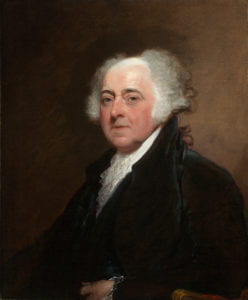
That mans Soul, it seems to me, was distended as wide as Creation. His powr over the human mind was absolute and unlimited. His Genius was great beyond Conception, and his Learning without Bounds. I can only gaze at him with astonishment, without comprehending the vast Compass of his Capacity. (John Adams, Diary 1: 23)
Satan’s words “have a long grand sound [. . .] which makes the whole fram of both Reader and Hearer thril with Transport.” [Rebel angels brandishing swords]: “alarms, rouses, astonishes” the mind. Nevertheless, Adams realizes that “The general sentiment is that of Rebellion and Warfare, proclaimed by all the infernal Host against the Almighty, which is a sentiment that cant fail to excite Horror.”
Can one read, without shuddering, this wild reverie of the divine, immortal Milton? [. . .] What! a single assembly govern England? an assembly of senators for life too? What! did Milton’s ideas of liberty and free government extend no further than exchanging one house of lords for another, and making it supreme and perpetual? [. . .] John Milton was as honest a man as his nation ever bred, and as great a friend of liberty; but his greatness most certainly did not consist in knowledge of the nature of man and of government, if we are to judge from this performance. (Works 4: 465-66; qtd. in Patterson 281)
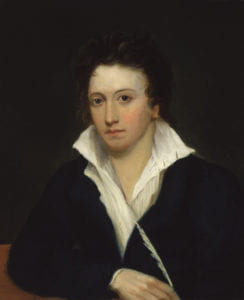

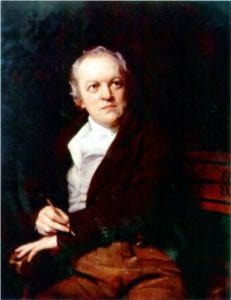

Virginia Woolf, A Room of One’s Own (1929)
My belief is that if we live another century or so — I am talking of the common life which is the real life and not of the little separate lives which we live as individuals — and have five hundred a year each of us and rooms of our own; if we have the habit of freedom and the courage to write exactly what we think; if we escape a little from the common sitting-room and see human beings not always in their relation to each other but in relation to reality; and the sky, too, and the trees or whatever it may be in themselves; if we look past Milton’s bogey, for no human being should shut out the view; if we face the fact, for it is a fact, that there is no arm to cling to, but that we go alone and that our relation is to the world of reality and not only to the world of men and women, then the opportunity will come and the dead poet who was Shakespeare’s sister will put on the body which she has so often laid down.
Lady Mary Chudleigh, 1699:
Woman’s being created last will not be a very great argument to debase the dignity of the female sex. If some of the men own this … ‘tis more likely to be true. The great Milton, a grave author, brings in Adam thus speaking to Eve in Paradise Lost, ‘Oh, fairest of creation, last and best of all God’s works.’
Mary Astell, 1700:
Patience and submission are the only comforts that are left to a poor people who groan under tyranny unless they are strong enough to break the yoke. Not Milton himself would cry up liberty to poor female slaves or plead for the lawfulness or resisting a private tyranny.
